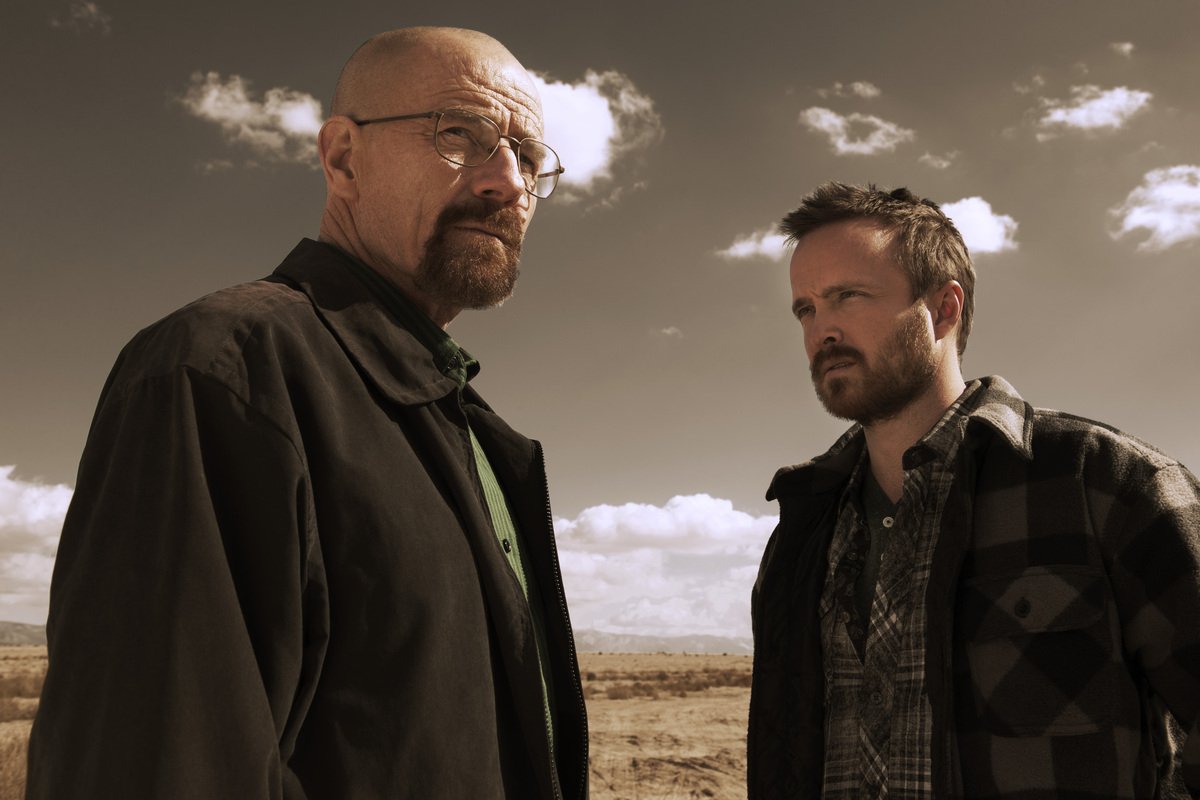*This article contains spoilers*
Early on in the Breaking Bad series finale, Skinny Pete, friend and former drug runner for main character Jesse Pinkman (played by Aaron Paul), makes a remark that aptly sums up the episode and the series as a whole: “The whole thing felt kind of shady, like, morality-wise.”
Through a dazzling series of parallels, self-referential images, and an allusion to a country song, series creator Vince Gilligan brought the bleak morality of the Breaking Bad universe to a staggering level in its conclusion, entitled Felina, on Sunday night.
The episode’s opening scene began with the use of the Marty Robbins song “El Paso.” The song, which gave the episode its title, narrates the story of a Texas gunslinger who murders a man after seeing him with the woman he loves, Felina. The protagonist then flees to New Mexico and eventually returns to see Felina, only to be met by vengeful cowboys who shoot and kill him. The reference suggests how twisted protagonist Walter White’s outlook on life has become: family is a crucial part of his ‘Felina,’ but it is rivaled by the blue crystal methamphetamine that increasingly became his one true love. This love, much like the gunslinger’s love for Felina, manifests itself in frightening ways.
Gilligan further elaborates on Walter’s perverted psyche by showing what he was like at the beginning of his descent into madness. When he breaks into old colleague Elliot’s home, Elliot weakly brandishes a butter knife at him. Elliot resembles Walter as we knew him in his early stages—brimming with emotion but too inexperienced to express it effectively. Walter’s stoic response to Elliot’s meekness starkly reaffirms the progression he has undergone.
Walter’s later behavior leaves no doubt of this full transformation. When he arrives at his wife Skyler’s home to see his family, the camera zooms in on him touching her face. This powerful image is echoed in the episode’s closing minutes, where the camera zooms in on him touching his meth-cooking equipment in a similar fashion. This analogy furthers the heartbreaking conclusion which Gilligan began hinting at with El Paso: Walter’s love for his meth has equalled or surpassed his love for his family.
Towards the end of Felina, Gilligan also references memorable images from prior seasons to make insinuations about Jesse and Walter’s morals. After brutally murdering former partner-in-crime Todd, Jesse shakily aims a gun—given to him by Walter—at Walter, in a shot highly reminiscent of the closing sequence of the third season finale. In the third season, Jesse chose to fire the gun at past cooking colleague Gale, but here he decides to leave it and make his escape. Jesse was haunted by Gale’s murder, and it’s unclear here whether he spares Walter’s life to avoid mercifully putting him out of his misery, or because he doesn’t want to put himself through that guilt-ridden torment again . The multivalency of the scene suggests the moral ambiguity that has long been the show’s calling card.
Finally, the closing shot recalls the image that concluded season four’s Crawl Space, the crane shot which zooms out from Walter laughing maniacally at his fate. In this instance, the camera zooms out from Walter’s vacant stare as police storm the compound. The former shows him losing his mind, and the latter depicts his physical death. In both shots, the initial focus on him is contextualized by gradually showing more of the world around him, thus signifying the effect that his evil has had upon it.
It is significant that Walter’s death is ultimately a product of his own invention, because it symbolizes how he has always been responsible for his fate. Throughout the show, Walter has consistently made decisions that have made him a less and less redeemable character. In Felina, Gilligan showed us the ultimate consequences of such decisions, in a devastating but satisfying finale.








